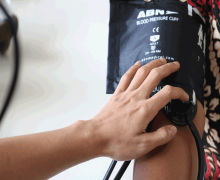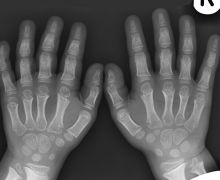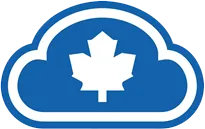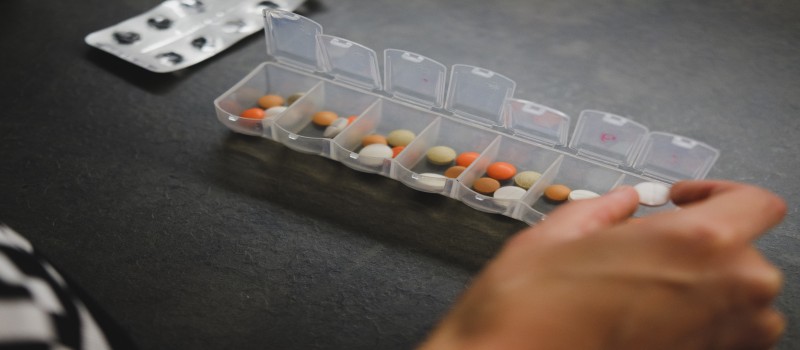In the fast-evolving world of wearable health technology, heart monitors have emerged as essential tools for individuals who prioritize cardiovascular health. Among the growing number of players in the market, Applied Robotics has positioned itself as a pioneer, offering heart monitoring solutions that blend precision engineering, real-time data analytics, and user-friendly interfaces. Whether you're a medical professional, athlete, or just someone interested in tracking heart health, Applied Robotics heart monitors provide a robust and reliable solution.
Understanding Heart Monitoring Technology
A heart monitor, sometimes referred to as a heart rate monitor or cardiac monitor, is a device designed to track the electrical activity of the heart over time. These devices can be worn as part of daily life or during specific activities like exercise. Some are embedded in smartwatches, while others are standalone units used for clinical diagnostics or long-term monitoring.
Modern heart monitors use a combination of sensors and software algorithms to detect and interpret heartbeats, heart rate variability (HRV), rhythm irregularities, and even early signs of cardiac anomalies. They can also sync with smartphones or cloud-based platforms for ongoing monitoring and data sharing with healthcare providers.
Applied Robotics: Merging AI with Cardiology
Applied Robotics is best known for integrating advanced artificial intelligence and machine learning algorithms with compact, wearable devices. Their heart monitors stand out due to the precision and responsiveness of their data capture systems, which can track:
-
Real-time heart rate and variability
-
Irregular heart rhythms (arrhythmia detection)
-
Long-term cardiac trends
-
Sleep-related cardiac activity
-
Stress and recovery analytics
Their flagship heart monitor models often include wireless ECG (electrocardiogram) capabilities, Bluetooth syncing, and water-resistant designs. Unlike many consumer-grade devices, Applied Robotics focuses on both medical-grade accuracy and consumer usability, making them trusted tools among healthcare providers and fitness professionals alike.
Key Features of Applied Robotics Heart Monitors
-
AI-Driven Anomaly Detection
Applied Robotics uses neural networks trained on large-scale cardiac datasets to detect irregularities that would be hard for humans to catch. Early signs of atrial fibrillation (AFib), bradycardia, or tachycardia are flagged in real time.
-
Cloud Integration and Data Sharing
Their heart monitors offer seamless integration with secure cloud platforms, allowing users to share their data with doctors, coaches, or personal trainers. Some models even support live-streamed ECG data for real-time assessments.
-
Ergonomic and Durable Design
Designed for 24/7 use, these devices are lightweight, sweatproof, and come with adjustable bands or adhesive patches that comfortably adhere to the skin. They are ideal for long-term monitoring without discomfort.
-
Battery Life and Charging
With efficient battery management, most Applied Robotics monitors last up to 7–10 days on a single charge. Fast-charging capabilities allow users to power up in just under an hour.
-
Multi-Platform Compatibility
The companion app works on Android, iOS, and desktop platforms, ensuring that users can view and manage their heart health data wherever they are.
Who Should Use Applied Robotics Heart Monitors?
These devices are suited for a broad audience:
-
Patients with chronic heart conditions needing real-time monitoring between doctor visits.
-
Athletes and fitness enthusiasts seeking peak performance insights and recovery tracking.
-
Elderly individuals wanting peace of mind with 24/7 cardiac monitoring.
-
Healthcare providers looking for reliable, remote patient monitoring solutions.
Even if you're not currently diagnosed with a heart condition, tracking your heart rate and rhythm can help you detect early warning signs of potential issues like hypertension, sleep apnea, or elevated stress levels.
Benefits of Using a Smart Heart Monitor
-
Preventative Health Insights
With ongoing monitoring, subtle changes in heart rate or rhythm can be flagged before they become dangerous.
-
Enhanced Workout Feedback
Athletes can use heart monitors to optimize their training zones, track recovery times, and reduce the risk of overtraining.
-
Peace of Mind for Families
For individuals with aging parents or at-risk loved ones, remote monitoring features provide reassurance and timely intervention alerts.
-
Personalized Health Trends
Unlike snapshots from occasional doctor visits, continuous monitoring provides a more complete picture of your cardiovascular health.
Where to Buy the Best Heart Monitors
When considering the best place to purchase a heart monitor — especially one from Applied Robotics — it’s important to balance price, authenticity, support, and warranty options. Here are a few reliable sources:
1. Official Applied Robotics Website
Buying directly from the source ensures that you get the most recent models, full warranty coverage, and access to the latest software updates. Applied Robotics also offers bundle deals for families or medical practices, along with financing plans in some regions.
-
Pros: Authenticity guaranteed, access to full customer support
-
Cons: Sometimes more expensive than third-party sellers
2. Certified Medical Device Retailers
Websites like MedSupplyDirect, CardioTech Shop, and HeartSmart often stock Applied Robotics devices alongside other medical-grade monitors. These vendors are authorized to sell FDA-approved and CE-certified equipment.
-
Pros: Trusted medical distributors, often have expert advice
-
Cons: May not carry every model or latest versions
3. Major Online Retailers (Amazon, Best Buy, Walmart)
If convenience and fast shipping are priorities, online marketplaces like Amazon or Best Buy carry a wide range of heart monitors, including Applied Robotics models.
-
Pros: Fast delivery, verified buyer reviews, sometimes lower prices
-
Cons: Be cautious of third-party sellers — always check for "Sold by Applied Robotics" or "Authorized Reseller" tags to avoid counterfeit or refurbished items
4. Specialty Health and Fitness Stores
Retail chains like REI, Dick’s Sporting Goods, or even niche boutique wellness stores may carry high-end models for performance athletes. Some even offer demo units for in-store testing.
5. Your Healthcare Provider
In cases of medical necessity, some doctors or cardiologists may recommend or sell heart monitors directly. If insurance is involved, going through a provider might help you get partial or full reimbursement.
What to Consider Before Buying
Before purchasing a heart monitor, keep these factors in mind:
-
Accuracy: Is it clinically validated or FDA-approved?
-
Battery Life: Will it last long enough for your needs?
-
Data Access: How easily can you export or share your data?
-
Compatibility: Does it work with your phone or health app ecosystem?
-
User Reviews: What are others saying about comfort, durability, and support?
Final Thoughts
Applied Robotics heart monitors represent the future of personal and professional heart health tracking. They combine the accuracy of hospital-grade equipment with the convenience and design of wearable technology, making them accessible for almost anyone.
As cardiovascular health becomes an increasingly important part of overall wellness, investing in a high-quality heart monitor is a smart decision. Whether you're training for a marathon, managing a medical condition, or simply curious about your heart's performance, a device from Applied Robotics can provide valuable insights and peace of mind.
When buying, prioritize trusted retailers or the official website to ensure you get a genuine product backed by support and warranty. In a world where your health data can lead to life-saving decisions, it’s worth choosing a monitor you can rely on.







 Canadian Company
Canadian Company 



 Sign In
Sign In
 Home
Home 
 About Us
About Us 
 How to order
How to order 
 Products
Products 






